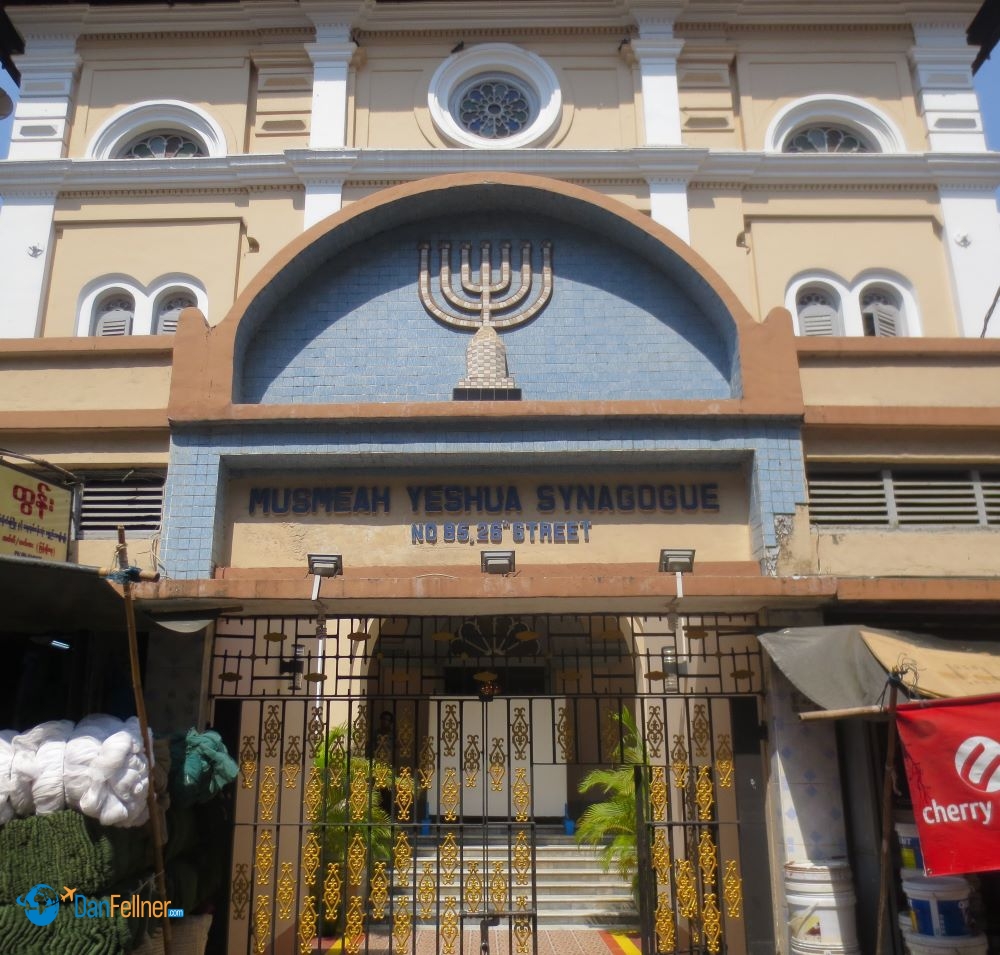The historic and beautifully maintained shul in Yangon survives thanks to one family
Jewish News of Greater Phoenix — May 13, 2016
YANGON, Myanmar — At first glance, there is nothing extraordinary about the two-story synagogue nestled between paint and fabric shops on 26th Street in bustling downtown Yangon. It’s certainly not the oldest, largest or most architecturally ornate synagogue you’ll see overseas.
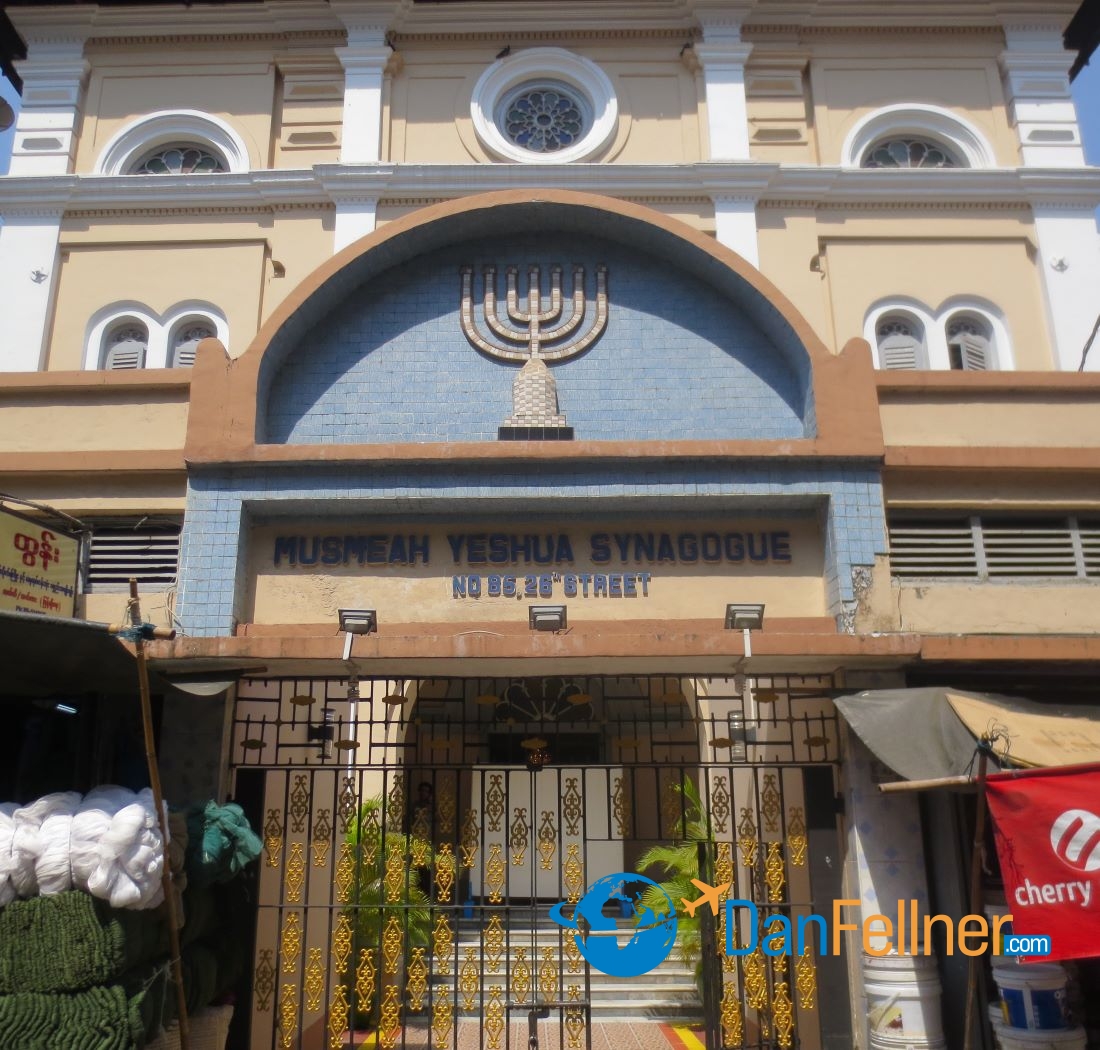
Musmeah Yeshua Synagogue in downtown Yangon, Myanmar’s only Jewish house of worship.
Yet in its own way, Musmeah Yeshua is one of the most remarkable Jewish houses of worship in the world. The fact that is still survives – and functions – is a testament to a determined Jewish-Burmese family that has almost single-handedly sustained Judaism in a country in which a once-thriving Jewish population has dwindled to only about 20 people.
During a recent trip to Myanmar, a country in Southeast Asia formerly known as Burma, I visited Musmeah Yeshua and met with Sammy Samuels, the leader and voice of the country’s tiny Jewish community. My three-day trip to Yangon was the highlight of an 18-day Asian cruise on the luxurious Oceania Nautica that began in Hong Kong, with stops in Myanmar, Vietnam, Singapore and Thailand, before ending in Mumbai, India.
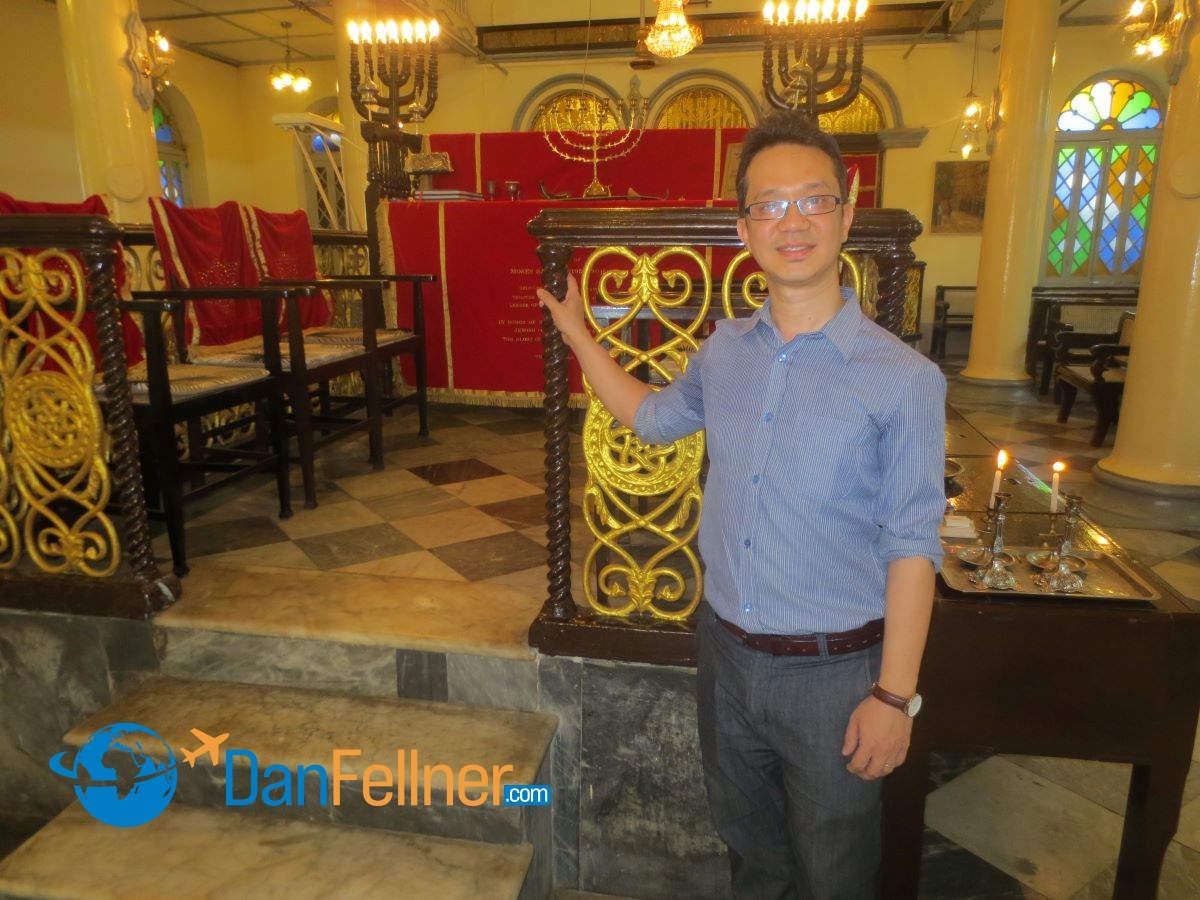
Sammy Samuels, the leader of Myanmar’s tiny Jewish community, inside Musmeah Yeshua Synagogue.
The Samuels family has been the caretakers of the synagogue for generations. Even though there aren’t enough Jews living in the country to sustain a synagogue, the family felt it was important to preserve the spirit of the Jewish community and give foreigners a place to pray.
“It started with my great-grandfather,” says Samuels. “He had a strong attachment to the synagogue. He also was the head of the community at that time, so if he had left, the synagogue would have been closed. Before he passed away, he made my father promise to keep the synagogue alive. I made a similar promise to my father as well.”
It was a promise Sammy willingly kept when his father, Moses, died last year. Sammy, 35, was honored to continue his father’s duties as overseer of the synagogue, which was built in 1896 for the increasing population of Iraqi and Indian Jews who immigrated to Yangon (then known as Rangoon) when it was a British colony.
Built in the Sephardic tradition with the bimah located in the center of the sanctuary and a women’s balcony upstairs, the interior has been beautifully maintained.
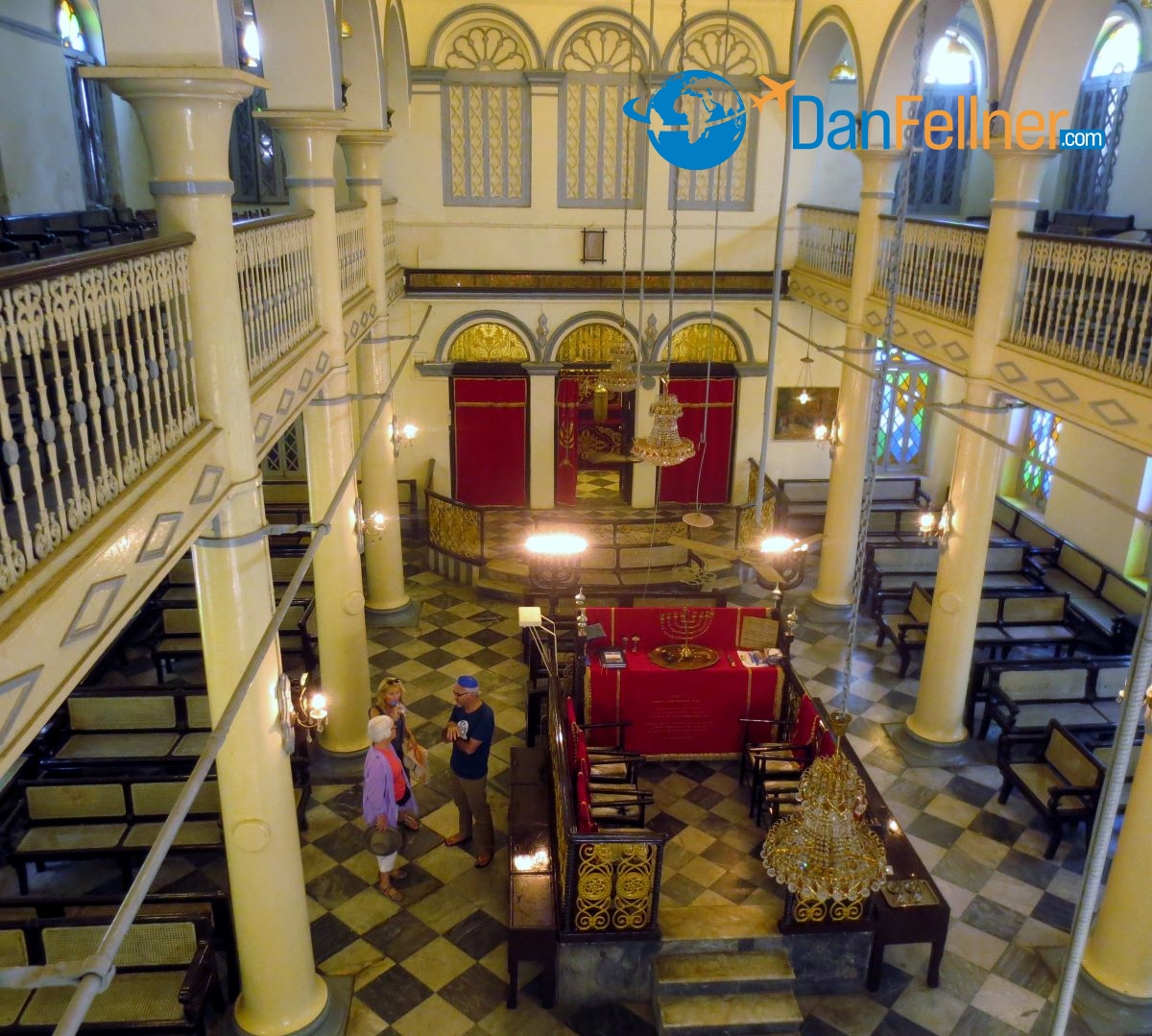
The beautifully maintained interior of Musmeah Yeshua Synagogue.
In the early 20th century, the Jewish community peaked at about 2,500 people. Many Jews left the country during the Japanese occupation of Burma during World War II, and more followed after the Burmese army assumed power in 1962. But the military government is now loosening its grip on power and democracy is coming to Myanmar.
“Last November, I voted for the very first time in my life,” says Samuels. “It was very emotional.”
But Samuels warns that change will come slowly in a country in which the military has controlled virtually all walks of life for more than a half-century.
“A lot of people have high hopes,” he says. “They hope the country will change tomorrow. And I’ve been telling them it will take time.”
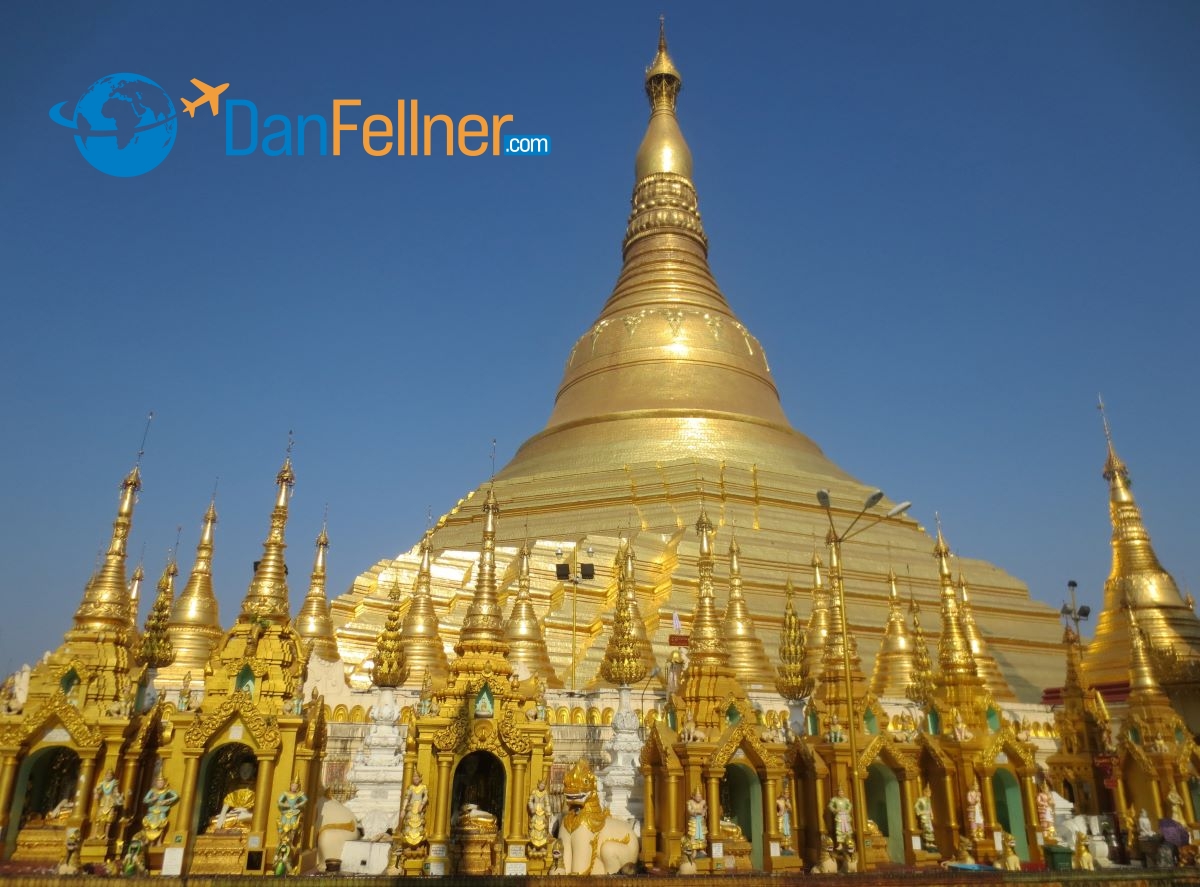
Yangon’s famed Shwedagon Pagoda.
Samuels, who has a degree in international business from Yeshiva University in New York, owns a travel agency called Myanmar Shalom Travels that has 32 employees, with offices in New York and Yangon. His company offers tours to Myanmar for both Jewish and non-Jewish tourists.
The synagogue is financially sustained from proceeds generated by the travel agency as well as donations from visitors. Samuels says 40-50 tourists visit the synagogue each day, which is open 10 a.m. to 1 p.m. daily except Sundays. Most of the visitors are non-Jewish.
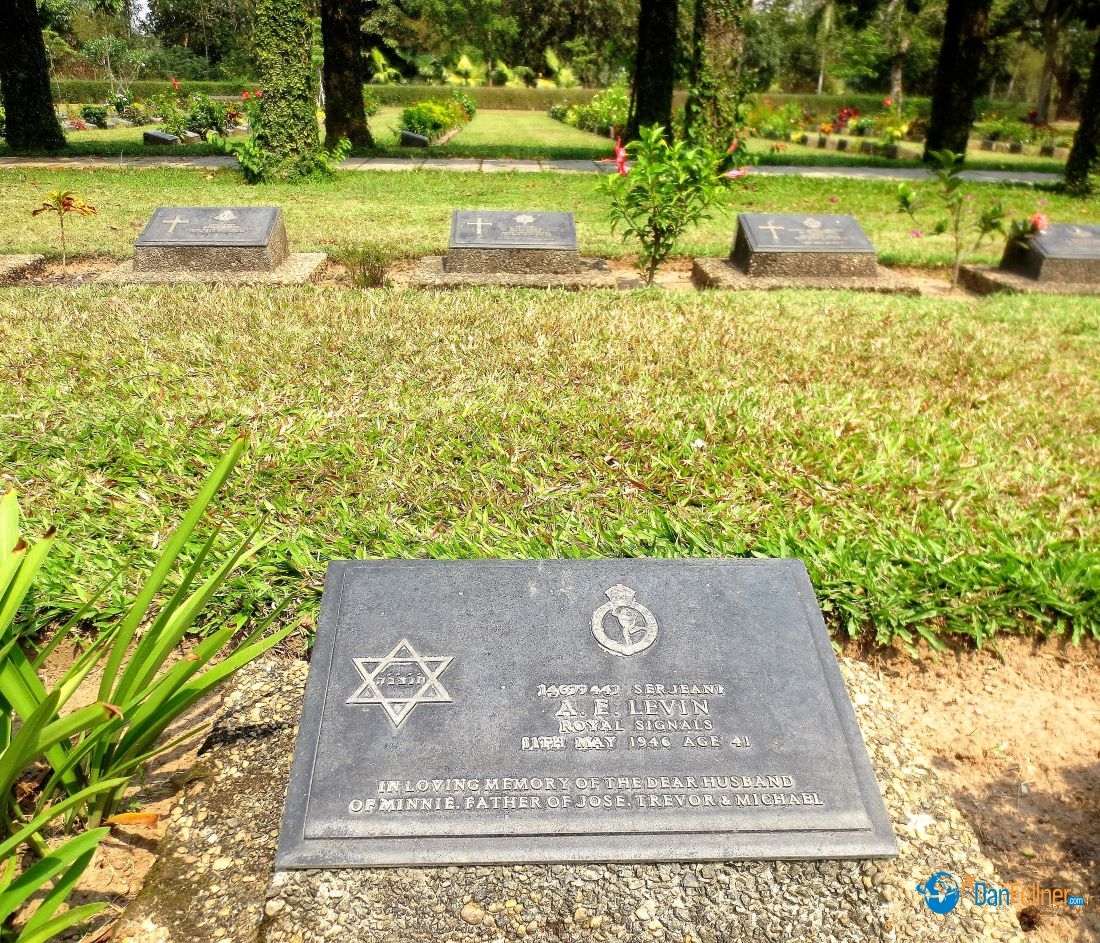
A Jewish grave at the Taukkyan War Cemetery near Yangon, a cemetery for Allied soldiers from the British Commonwealth who died in battle in Burma during World War II.
“My father believed that if anyone was interested, they could come,” he says. “We don’t ask whether you are Jewish, Muslim or Christian. He welcomed everyone and treated them the same way.”
The synagogue doesn’t have a rabbi and it’s been more than 50 years since regular services were held. Lay-led Shabbat services take place a couple of times a month during December and January, the high season for tourism in Myanmar. A rabbi – usually from the United States — is brought in to conduct services during the High Holidays. But if Samuels knows a group of Jewish visitors will be in town during the Sabbath, he makes sure they are aware they have a place to pray and enjoy the fellowship of other Jews.
“I see so many American visitors who come here to Yangon, and the highlight for them is lighting the Shabbat candles and drinking the Kiddush wine together with the community,” he says. “They never thought they would do something like that in a country like Burma.”
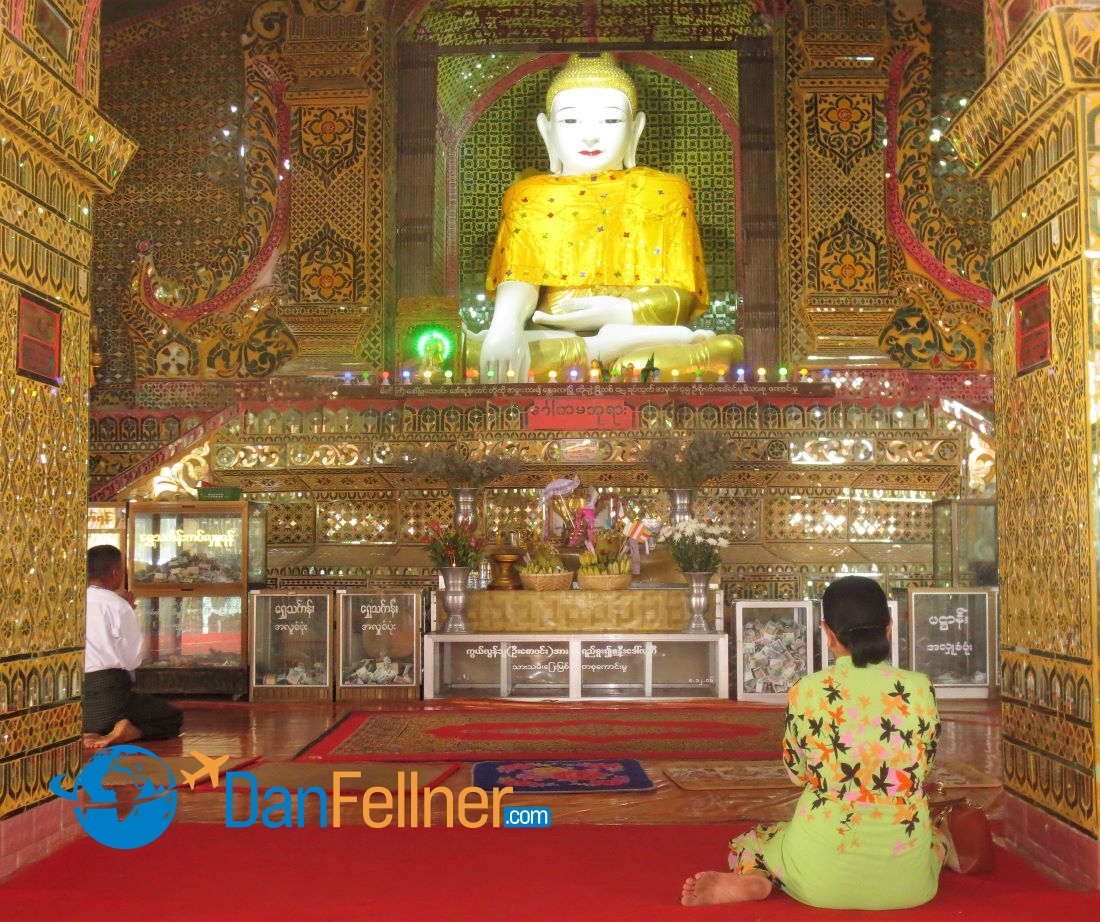
Nearly 90 percent of the population in Myanmar identifies as being Buddhist.
Musmeah Yeshua is located just down the street from a mosque and many of the businesses on the block are owned by Moslems. Samuels says the two groups have peacefully coexisted for decades.
“They are very nice people,” he says of his Moslem neighbors. “The relationship has been wonderful. We respect them and they respect us and we hope to continue that way.”
Yangon, a city of more than five-million people, is full of wondrous Buddhist temples – including the famed 2,500-year-old Shwedagon Pagoda — and stately British colonial buildings.

Children kick around a soccer ball on the streets of Yangon, Myanmar.
During my cruise on the Nautica, I also visited synagogues in Singapore and India. But the one in Yangon made the most lasting impression. Other tourists apparently agree that Musmeah Yeshua is worth visiting. In 2013, the synagogue was voted the third-highest ranking attraction out of 41 sites in Yangon, according to TripAdvisor.
Samuels summed up Musmeah Yeshua’s importance to both foreigners as well as the local Jewish community: “Who would think that in a country like Myanmar where there are so many Buddhist temples that a synagogue would exist? So it’s a very unique place.
“We have all these visitors coming in and we have a connection. Because of this, we have never felt alone. It’s a feeling that we love.”
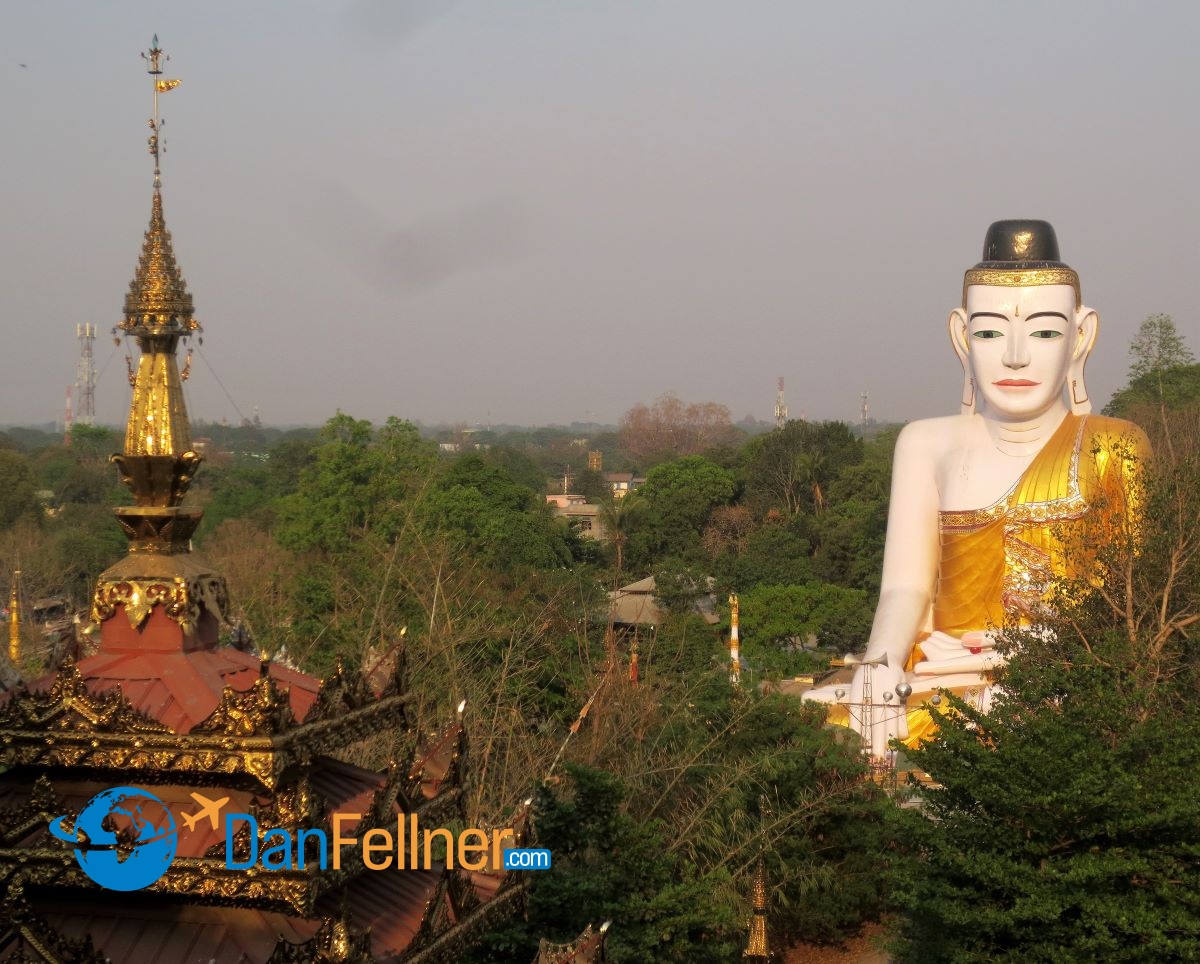
© 2016 Dan Fellner

